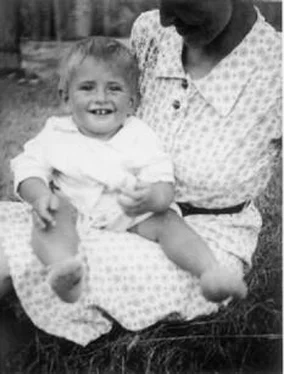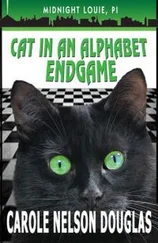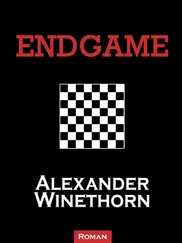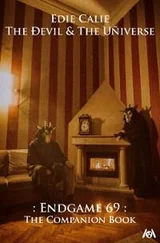Eventually, Bobby lost as friends not only the Lilienthals, but also the Polgars. Sofia Polgar was invited to give a simultaneous exhibition at the American embassy of Budapest, and Bobby was furious that she’d even consider it, claiming that his enemies—that is, the U.S. government and, therefore, the American embassy—must be considered the Polgars’ enemies as well. Bobby quarreled not only with Sofia but with the entire Polgar family about the exhibition. Incredulous, Bobby asked Sofia: “How can you even talk to those people?” She went ahead anyway and performed well. The Polgars stopped all contact with Bobby after that, and he with them.
All while he was attempting to establish a life in Budapest, and yet alienating everyone around him, Bobby was also trying to win over Zita. It was a campaign fated to end badly. In the nearly eight years that he lived in Hungary, he only managed to convince her to see him a few times—once when she attended his fiftieth birthday party in Bulgaria. That time, he again proposed marriage, even though she was happily ensconced with her boyfriend and had a child. “It’s out of the question,” she told him. “Then what about your sister Lilla?” he asked. When Zita told her mother what he’d said, that Bobby was looking for a breeder, Mrs. Rajcsanyi was horrified.
Zita’s theory about Bobby was that he was dominated by an idée fixe of reproducing himself, much as Henry VIII quested after a son. She felt that the obsession driving Bobby was I must get married, I must have a child, I cannot die without an offspring, or else my genius will vanish forever . Fischer began collecting photos of other Hungarian girls he’d like to meet, and he recruited his new friend and assistant Janos Rigo—an international master and chess organizer—to serve as a matchmaker. The girls had to have certain characteristics or else he didn’t even want to meet them. They must be: (1) blond and blue-eyed, (2) young, (3) beautiful, and (4) a serious chessplayer. When Rigo would bring photos to him, Bobby almost always rejected the women as not having all or enough of those qualities. Finally, Bobby placed the following advertisement in several Hungarian newspapers (his description of himself is revealing, as is the fact that he didn’t risk narrowing the pool of candidates by sticking with all four of his requirements):
Single, tall, rich, handsome, middle-aged American man with good personality desires to meet beautiful young Hungarian girl for serious relationship. One or more photos please.
He gave Rigo’s address for replies, and there were some responses, but none met his perfectionist standards, and ultimately, he nixed them all.
Bobby continued reading anti-Semitic literature as well as neo-Nazi tracts and getting into heated arguments about the evilness of the Jews with virtually everyone he met. Once, when coming home late at night from an event, with Rigo serving as his driver, he refused to allow a Jewish chess player to enter the car until the man was willing to proclaim that the Holocaust didn’t happen.
Some of the many hate books Bobby read while in Budapest were The Myth of the Six Million by David Hoggan; On the Jews and Their Lies by Martin Luther, written in 1543; and Jewish Ritual Murder by Arnold S. Leese. He also read an account of Nazi general Ernst Kaltenbrunner, a leader of the SS who ended up being found guilty at the Nuremberg trials and executed. While in prison and awaiting judgment, Kaltenbrunner wrote a letter to his family and Bobby was affected by it. Here are excerpts of what Kaltenbrunner wrote:
My own destiny lies in the hands of God. I am glad that I never separated from Him. I cannot believe that I shall be held responsible for the mistakes of our leaders, for in the short time of my activity I have striven hard for a reasonable attitude, both internal and external.… They ought to have paid more attention to my words.… We have no property worth mentioning. Perhaps the only resource for you will be my small stamp collection.… Was it not my duty to open the door to socialism and freedom as we imagined and desired them? … I have not given up hope that the truth will be found out and for a just legal decision.
When Bobby discovered that Kaltenbrunner’s son was still alive, living in Vienna, he visited him to discuss whether the concentration camps did or didn’t exist. If they did exist, he wanted to know whether the entire Holocaust story was blown out of proportion, and the account of millions being exterminated a myth. Bobby was disappointed when he met the executed SS leader’s son. The younger Kaltenbrunner was an avowed liberal and had no interest in discussing his father, the camps, or anything else concerning Nazism or anti-Semitism. But he was a chess player! To Kaltenbrunner the fact that the great Bobby Fischer was gracing his home—for whatever reason—was equivalent to having the president of a country stop in to pay a visit. When Bobby left, Kaltenbrunner affixed an engraved plaque to the chair in which Bobby sat: IN THIS CHAIR SAT THE WORLD’S CHESS CHAMPION, ROBERT J. FISCHER.
In the summer of 1993, an American feature film called Searching for Bobby Fischer was released to stellar reviews. Originally titled Innocent Moves , the film was retitled before final release, with producers deciding to mimic the title of the book on which the film was based. Using Bobby’s name, they thought, would have more promotional power. Searching for Bobby Fischer was the true story of a young boy, Josh Waitzkin, who showed incredible talent for the game, and how he became successful at the board, at first despite his parents’ doubts and then with the encouragement of his parents and his extraordinary chess teacher, Bruce Pandolfini, played in the film by Ben Kingsley. It was one of the most respectful and sensitive films ever made about chess. The character of Bobby is not in the film, but he is seen in documentary footage. What he accomplished in Iceland inspired the film, which discusses the so-called Fischer Boom of increased chess activity, post-1972. The film grossed more than $7 million and was nominated for an Academy Award. Bobby was indignant and then irate when he heard about it, proclaiming the film a misappropriation of his name and, therefore, an invasion of his privacy. When the final box office receipts were tallied, the producers were disappointed, citing the ambiguous title of the film as the cause for relatively low attendance, and on hindsight they wished that they hadn’t used Bobby’s name.
He was never asked by the filmmakers to give his approval of the project, nor did he receive any compensation from it. He claimed that the film made more than “a hundred million dollars,” which was highly exaggerated. It’s “a monumental swindle,” he wrote. After checking with his attorney, he discovered that because he was a public figure, the producers—Paramount Pictures—had the right to use his name. Even though Bobby felt Paramount’s behavior was unethical and unfair, he took no legal action. Even so, after that he continually complained and wrote negatively about the film, even though he’d never seen it and had been told that it was an excellent depiction of how a child enters the chess world.
Bobby felt safe enough to travel and eventually went to many countries: often to Germany as a companion to Benko, who was playing chess for a team there … to Austria to go shopping with Rigo … to Switzerland to meet his bankers … to Argentina to promote his Fischer Random variation … and to the Philippines, China, and Japan for social and business reasons. Mysteriously, he also journeyed to Italy to meet a member of the Mafia; he wanted to meet a mafioso because he admired the Mafia’s family structure and code of conduct and wanted to know more about it. Whether this was the real reason he flew to Italy is not known.
Читать дальше


![Антон Текшин - EndGame [СИ]](/books/394477/anton-tekshin-endgame-si-thumb.webp)









